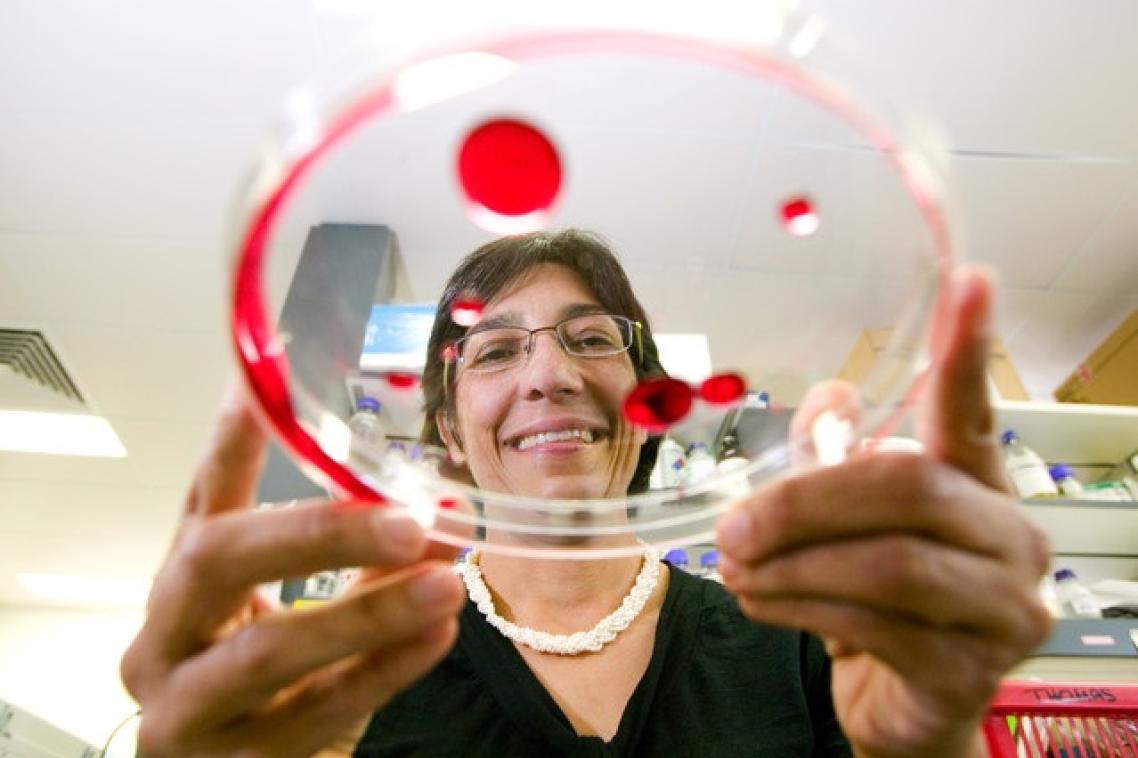Partnership to progress treatments for Sjogren’s syndrome

A potential new treatment for autoimmune disease Sjogren’s syndrome is a step closer to development, thanks to a partnership between The University of Queensland and global biotechnology company CSL Limited.
UQ’s technology transfer company UniQuest has signed an agreement with CSL to develop and commercialise UQ’s antigen specific immune tolerance induction (ASITI) technology for the treatment of the immune system disorder.
Lead researcher Professor Ranjeny Thomas from UQ’s Diamantina Institute said the partnership marked a significant milestone for the technology.
“The ASITI technology addresses the immunological cause of autoimmune disease,” Professor Thomas said.
“Our nanoparticle delivery system re-establishes disease-specific tolerance in patients, without impairing normal immunity and the ability to fight infections.
“Our liposome-encapsulated antigen – DEN-181 for rheumatoid arthritis – has been developed to the end of a first-in-human clinical trial.
“From that first clinical trial we learnt a lot about DEN-181 and its ability to modulate the immune system in a disease-specific manner and platform improvements.
“We are now applying this knowledge to the Sjogren’s syndrome program, as well as our unpartnered preclinical programs including for rheumatoid arthritis and Type 1 diabetes.”
UniQuest CEO Dr Dean Moss said the partnership with CSL would build on UQ’s ongoing relationship with the global biotech company.
“This partnership will bring together CSL’s expertise in the development of treatments for autoimmune diseases and UQ’s excellence in life sciences research, following two earlier research collaborations between the partners relating to immune modifying therapies,” Dr Moss said.
“This ASITI platform technology has the potential to change the lives of those suffering from autoimmune diseases, and we hope it can be translated to other therapeutic programs including rheumatoid arthritis and type 1 diabetes.”
CSL senior vice president of research Dr Andrew Nash said the program could lead to an entirely new approach for the treatment of Sjogren’s syndrome.
“This is another example of Australian research excellence, harnessing the strengths of both industry and academia to address an important area of unmet medical need.”
Media: UniQuest Media and Communication, Esther Haskell, e.haskell@uniquest.com.au, +61 7 3365 7480, +61 409 767 199.
Related articles

Australia needs doctors – so why are hundreds of qualified international physicians unable to work?

Greater attention needed on community service workforce
Media contact
UQ Communications
communications@uq.edu.au
+61 429 056 139
